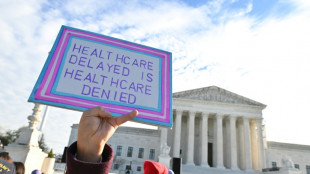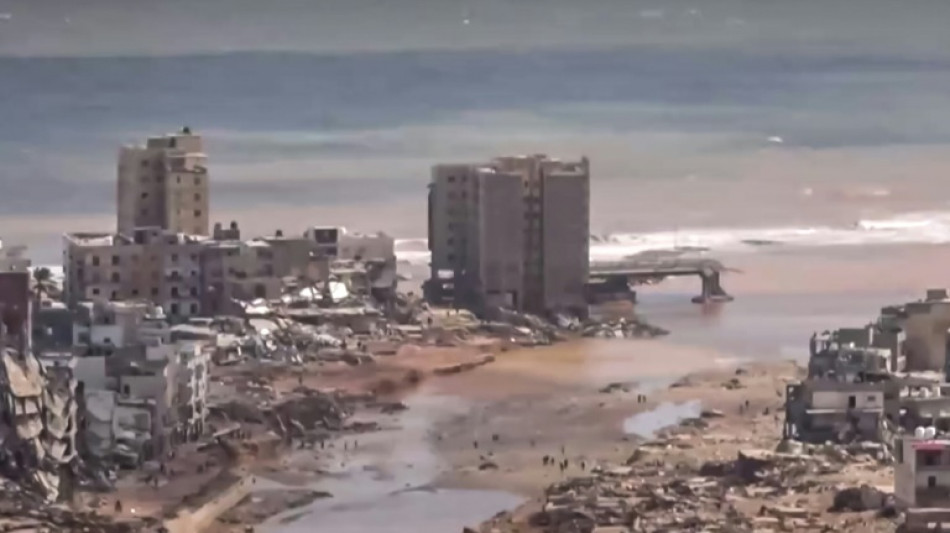
-
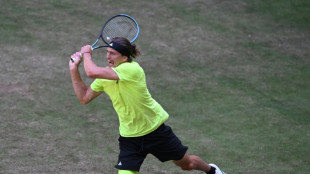 Zverev battles in Halle, faces Medvedev in semis
Zverev battles in Halle, faces Medvedev in semis
-
Tennis star Sinner releases duet with Italian tenor Bocelli

-
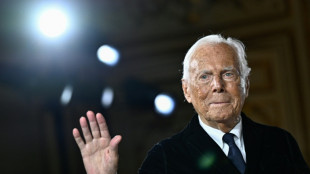 Giorgio Armani to miss Milan Fashion Week shows
Giorgio Armani to miss Milan Fashion Week shows
-
Armenia PM in talks with Erdogan on 'historic' Turkey visit
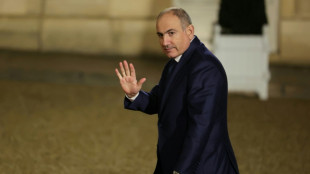
-
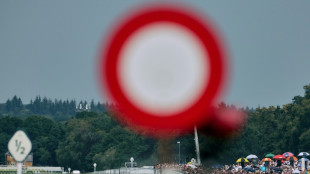 Royal Ascot is 'heaven on earth' for shock winner Cercene's trainer
Royal Ascot is 'heaven on earth' for shock winner Cercene's trainer
-
Iran's nuclear programme: from its origins to today's dispute
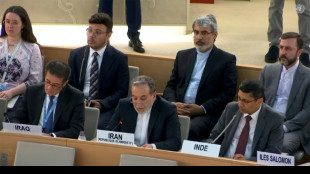
-
 Draper digs deep to reach Queen's semi-finals for first time
Draper digs deep to reach Queen's semi-finals for first time
-
Afghan-born Nadia Nadim returns to Danish team for Euros

-
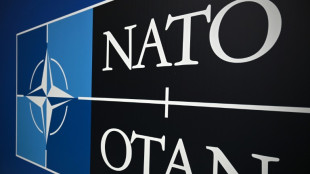 NATO scrambles to overcome Spain block on summit spending deal
NATO scrambles to overcome Spain block on summit spending deal
-
Putin says recession in Russia 'must not be allowed to happen'
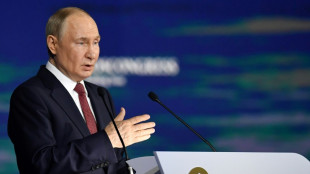
-
 Ton-up Jaiswal makes England toil in first Test as India take control
Ton-up Jaiswal makes England toil in first Test as India take control
-
NBA star Durant takes minority PSG stake

-
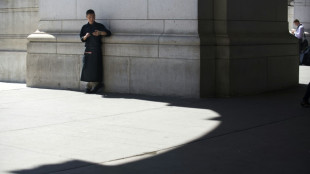 US enters first major heat wave of 2025
US enters first major heat wave of 2025
-
Macron says Europe must become 'space power' again

-
 Big-name porn sites back online in France after age check row
Big-name porn sites back online in France after age check row
-
Zverev battles into Halle semis, joined by Medvedev
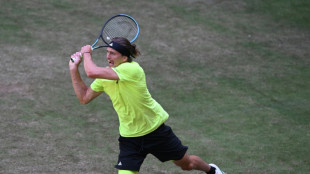
-
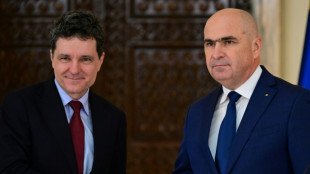 Romania names pro-EU PM after months of instability
Romania names pro-EU PM after months of instability
-
Indonesia President denies G7 snub in Russia visit
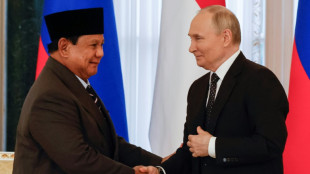
-
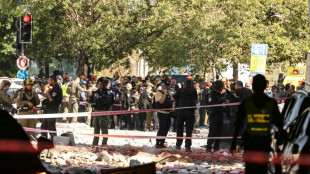 European powers meet Iran in Geneva as war with Israel rages
European powers meet Iran in Geneva as war with Israel rages
-
Staff shortages bite as Greeks shun low-paid tourism jobs
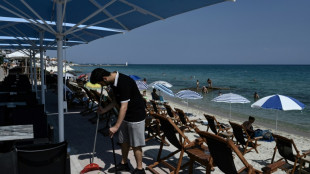
-
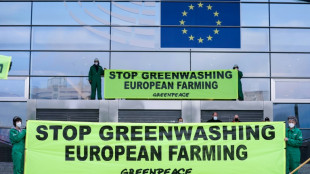 EU plans to scrap anti-greenwashing rules after pushback
EU plans to scrap anti-greenwashing rules after pushback
-
Iranian foreign minister says Israel attack 'betrayal' of diplomacy with US
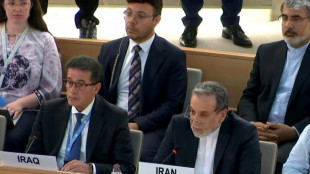
-
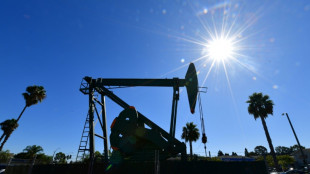 Oil drops, stocks climb as Trump delays Iran move
Oil drops, stocks climb as Trump delays Iran move
-
UK MPs vote in favour of assisted dying law in historic step
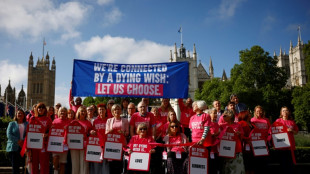
-
 Bangladesh's lead over Sri Lanka nears 200 in first Test
Bangladesh's lead over Sri Lanka nears 200 in first Test
-
Dutch footballer Promes extradited over cocaine smuggling case

-
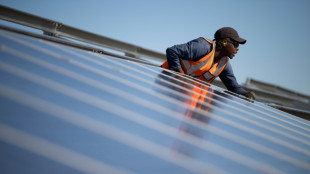 World Bank and IMF climate snub 'worrying': COP29 presidency
World Bank and IMF climate snub 'worrying': COP29 presidency
-
Liverpool agree deal for Bournemouth's Kerkez: reports

-
 UK probes Amazon over suspected late payments to food suppliers
UK probes Amazon over suspected late payments to food suppliers
-
Sinner says early Halle exit gives him more time to prepare for Wimbledon
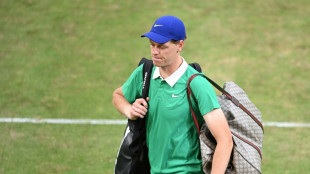
-
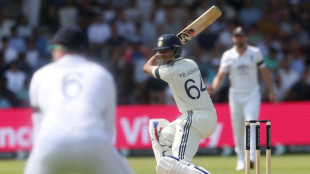 England strike back against India in first Test
England strike back against India in first Test
-
Netanyahu's other battle: swinging Trump and US behind Iran war

-
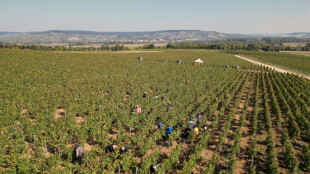 French champagne makers face prison in human trafficking trial
French champagne makers face prison in human trafficking trial
-
Oil drops, European stocks climb as Trump delays Iran move
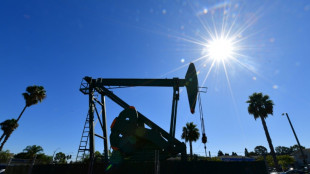
-
 Kiwi sailing legend Burling joins Italy's America's Cup team
Kiwi sailing legend Burling joins Italy's America's Cup team
-
US singer Chris Brown pleads not guilty in UK assault case
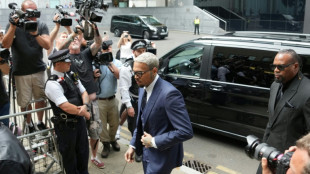
-
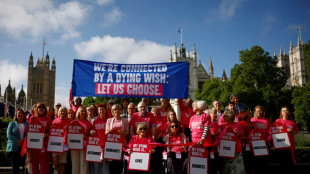 UK MPs debate assisted dying law ahead of key vote
UK MPs debate assisted dying law ahead of key vote
-
Second woman accuses French senator of drugging her
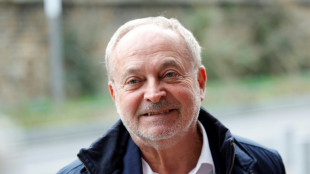
-
 Russian government, central bank spar over economic downturn
Russian government, central bank spar over economic downturn
-
Thai PM meets army commander in attempt to defuse political crisis
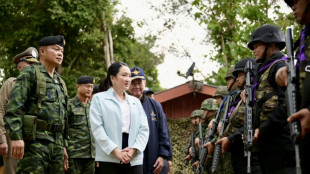
-
 More microplastics in glass bottles than plastic: study
More microplastics in glass bottles than plastic: study
-
Top Iran, EU diplomats to hold nuclear talks
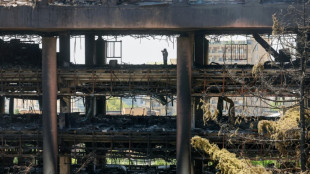
-
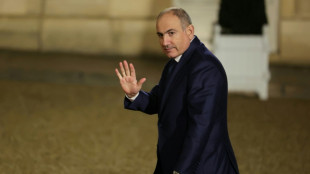 Armenia PM arrives in Turkey for 'historic' visit
Armenia PM arrives in Turkey for 'historic' visit
-
Salah among nominees for PFA Player of the Year award

-
 EU bars Chinese firms from major state medical equipment contracts
EU bars Chinese firms from major state medical equipment contracts
-
Three-time world champion figure skater Sakamoto to retire

-
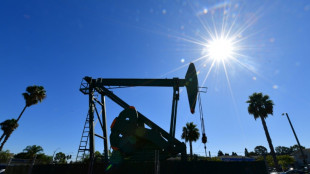 Crude sinks as Trump delays decision on Iran strike
Crude sinks as Trump delays decision on Iran strike
-
US appeals court allows Trump control of National Guard in LA
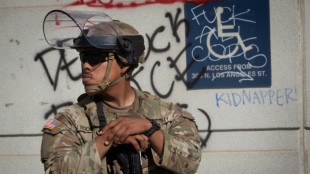
-
 Monsters and memes: Labubu dolls ride China soft-power wave
Monsters and memes: Labubu dolls ride China soft-power wave
-
Chad hopes 'green charcoal' can save vanishing forests
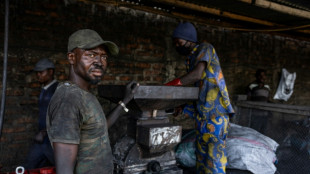

'We need a state': anger among Libya flood survivors
In a Libyan hospital ward, trauma and grief mix with disbelief and anger among the survivors of the flood disaster that killed untold thousands in the devastated city of Derna.
A tsunami-sized flash flood crashed through the Mediterranean city, razing entire neighbourhoods, after two upstream dams burst amid torrential rains on September 10.
"Two years ago, the big dam already had leaks, even though it was only half full," Abdelqader al-Omrani, 48, told AFP from his hospital bed in Benghazi, the major city in the eastern part of Libya.
"We had warned the municipality and demanded repairs," Omrani said, charging that the local authorities now "have our deaths on their conscience".
Omrani said that when his house, located close to one of the dams, was rapidly submerged late at night, he fled onto the roof terrace, then climbed onto a tree and scrambled up a mountain slope.
He said he later saw the lifeless bodies of six relatives amid the utter devastation of his hometown.
When the muddy waters finally receded, there were "no buildings, no trees, only the mountain and no living soul," he said, choking back tears.
"I experienced the apocalypse, without exaggeration."
Another patient, Ezzedine Miftah, 32, voiced similar anger, blaming official negligence for the disaster in which more than 3,300 bodies have been recovered and thousands more remain missing.
Speaking through his oxygen mask, Miftah said that "those in charge did not do their job and let the dams burst".
- 'A cause to defend' -
In Derna, rescue crews have pushed on with the grim task of digging out bodies and clearing the rubble in what, more than a week later, has turned into a dusty wasteland.
The remains of the dead, retrieved from shattered buildings and washed up on the seashore, have been buried in mass graves.
On Monday, several hundred protesters rallied at the city's main mosque mosque and accused the authorities of neglect, later torching the home of the mayor.
The outburst of public anger prompted the head of eastern Libya's administration, Osama Hamad, to dissolve Derna's municipal council.
The diaster has been blamed on the weather conditions that turned Storm Daniel into a hurricane-strength extreme weather event -- but also on the impact Libya's years of war and chaos have had on critical infrastructure, early-warning systems and emergency response.
The oil-rich country was hurled into turmoil after a NATO-backed uprising led to the overthrow and killing of dictator Moamer Kadhafi, followed by years of fighting between militias, mercenaries and jihadists, who at one stage controlled Derna.
Libya is now split between two rival centres of power: the UN-recognised government based in Tripoli in the west, and an eastern administration backed by military strongman Khalifa Haftar.
The flood disaster sparked a new sense of national solidarity and stepped up cooperation on the emergency relief effort.
"After all the deaths, the country is finally united, everyone has rushed to help us," Omrani said, adding that Derna was now "a cause to defend".
- 'From problem to problem' -
Another survivor, a man in a nearby hospital bed, voiced scepticism that Libya will see real unity and stability any time soon.
"We need a state," said the 53-year-old who asked to remain anonymous.
He said there had been no official warning that the city's previously dry riverbed and adjoining neighbourhoods could be consumed by a churning wall of water he likened to "a tsunami".
"We received an alert that the sea level was going to rise," he said, which led him to take his wife and their four children to relatives living in the mountains.
He said that when he returned alone to the family home in Derna, he sought advice from local authorities and was assured his house was not at risk.
When the flood smashed into his house, he said, his head "literally hit the ceiling when the water filled the entire living room".
His hands and feet were broken as he was swept away, but he somehow survived "the worst horror in the world".
When he finally found his family the next day, the man said, "they thought they saw a ghost, they were sure I was dead".
He is now waiting for surgery for his fractures, which have become infected.
"We need billions," starting with "a new sewage network", he said.
Thinking about the dire needs of the traumatised community, he said: "People can neither drink nor wash with water.
"Libya has gone from problem to problem. But now we need a state, because Derna is devastated and there are still 70,000 people threatened by epidemics there."
R.Buehler--VB


